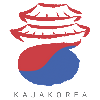Korean Lessons ᚛ Level 2 - Korean for Beginners #1 (Lessons 31 to 60) ᚛ Lesson 32 - Negation in Korean [안] [-지 않다]
Negation in Korean [안] [-지 않다]
There are two ways to express negation in Korean.
Negation with -지 않다
It is possible to express negation in Korean with the form
-지 않다 which is attached to the verb as follows:
[Stem]지 않다
- 먹다 (= to eat) → 먹지 않다 (= not to eat)
- 읽다 (= to read) → 읽지 않다 (= not to read)
- 하다 (= to do) → 하지 않다 (= not to do)
The -지 않다 form is actually a new verb that can be conjugated in all the forms and tenses, as we had seen in the previous lessons.
먹지 않아?
→ Aren't you eating?
이 책을 읽지 않았어요.
→ I haven't read this book.
그거 하지 않을 거야.
→ I won’t do it.
Negation with 안
A second way of expressing negation, which is much more widely used in speech than the -지 않다 form because it is shorter, is by using the word
안 before the verb, as follows:
안 [Verb]
- 먹다 (= to eat) → 안 먹다 (= not to eat)
- 읽다 (= to read) → 안 읽다 (= not to read)
- 하다 (= to do) → 안 하다 (= not to do)
The verb can of course be conjugated as we wish.
안 먹어?
→ Aren't you eating?
이 책을 안 읽었어요.
→ I haven't read this book.
그거 안 할 거야.
→ I won’t do it.
안 and verbs in -하다
General rule
Many verbs ending in -하다 like 공부하다 (= to study), 일하다 (= to work), 청소하다 (= to clean), 요리하다 (= to cook), etc., are somewhat peculiar verbs. Indeed, most of these verbs are in fact a shortcut to express the act of doing something. So, in their long version, we use the object particle 을 / 를.
- 하다 (= to do)
- 청소하다 = 청소를 하다 (= to do cleaning = to clean)
- 요리하다 = 요리를 하다 (= to do cooking = to cook)
When you use the word 안 to express negation, it is necessary to use the long version of verbs in -하다.
청소를 안 해요?
→ Aren't you cleaning up?
(not 안 청소해요?)
요리를 안 했어.
→ I haven't cooked.
(not 안 요리했어.)
Also, as you know, the object particle 을 / 를 is optional in simple cases. So, it can usually be omitted.
일 안 할 거야.
→ I won’t work.
운동 안 했어.
→ I haven’t done exercise.
Exceptions in -하다
Please note that this rule is only valid for verbs that are compositions of a common noun and the verb 하다 to express the concept of performing an action. Verbs like 좋아하다 (= to like), 싫어하다 (= to hate) or adjectives such as 약하다 (= to be weak), 강하다 (= to be strong), 똑똑하다 (= to be smart), 친절하다 (= to be kind) are not action compositions.
안 좋아해.
→ I don't like.
(not 좋아를 안 해. which makes no sense)
안 피곤해.
→ I'm not tired.
(not 피곤을 안 해. which makes no sense)
안 and compound verbs
Learn more
Opposite verbs
Learn more
Summary table of structure
Learn more
Exercises
Learn more
Get two printable eBooks containing EVERYTHING you need to know to master Korean conjugation. You’ll find all the most commonly used verb forms in Korea, explanations of the many exceptions, detailed conjugation tables for 500 essential verbs and adjectives, and over 1,000 example sentences for everyday situations to help you use these verbs correctly. An absolute must-have no matter your level in Korean!
Learn more

